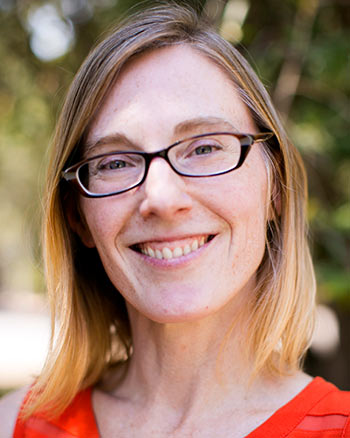
Jennifer A. Petersen (Associate Professor, Annenberg School for Communication and Journalism, University of Southern California)
September 26, 2023
Advisor(s): Juan Walker, NHC Teacher Advisory Council
It is common for legal historians to note that the modern conception of freedom of speech is an invention of the twentieth century; much of the broad civil libertarian interpretation of expressive rights developed between the 1930s and the 1960s. We know a lot about the way that social movements and political events shaped this history and broadened the conception of freedom at the core of free speech. We know less about the way that media and their uses have shaped the basic understanding of expression within the First Amendment.
Looking at cases in which the Supreme Court confronted novel forms of expression, from silent cinema to flag salutes and computer programs, this webinar will explore ways that First Amendment law has been shaped by media technologies and their uses—and what this might mean for the future of free speech. By the end of this webinar, educators will be able to teach about the modern understanding of the First Amendment that emerged post-WWI. They will also leave the webinar with tools for using historical debates about how the First Amendment applied in older media to discuss debates around freedom of speech and social media today.
Webinar Resources
Before the live webinar please be sure to review the required resources. The two chapters provide background on the origins of modern freedom of speech. The Blasi chapter focuses on the courts and politics and argues that the modern First Amendment was created with democratic concerns more than individual rights at its core. The Weinrib chapter offers a broader social and political lens, and highlights the ways that various interest groups, from labor to businesses, shaped early 20th century First Amendment law.
- Blasi, Vincent. “Rights Skepticism and Majority Rule at the Birth of the Modern First Amendment.” In The Free Speech Century, edited by Lee Bollinger, and Geoffrey Stone, 13–32. Oxford, UK: Oxford University Press, 2019.
- Weinrib, Laura. “Rethinking the Myth of the Modern First Amendment.” In The Free Speech Century, edited by Lee Bollinger, and Geoffrey Stone, 48–67. Oxford, UK: Oxford University Press, 2019.
Subjects
Journalism and Communication / Education Studies / First Amendment to the United States Constitution / Supreme Court of the United States / Mass Media / Social Media / Technology / Legal History /
Rights

This work is licensed under a Creative Commons Attribution 4.0 International License.